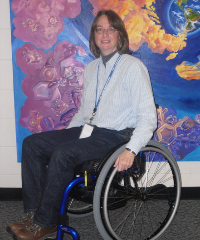Blog - Margaret Pippin
GLOBE Breadcrumb
- Home >
- Margaret Pippin >
- Blog
GLOBE Side Navigation
Blogs
Please complete your formal training to unlock the ability to create GLOBE Blogs.
See Training > User Roadmaps in the site navigation to learn more.Blogs

Lectures, lessons, and learning opportunities of all kinds are available online these days… luckily, air quality investigations can be, too! Publically available sources of air quality data, which can be accessed any time and anywhere, can be used in conjunction with or in lieu of the GLOBE Aerosols Protocol for students and teachers participating in the US Air Quality Student Research...

Data Data Everywhere! #1: How to get the 'T' out! You may have noticed that the time format when you retrieve data from the GLOBE web site recently changed. The new format is YYYY-MM-DDTHH:MM:SS. We would like to show a quick and easy way to go back to the time format MM/DD/YYYY HH:MM:SS. 1) Select the column that has the time format you want to change. 2) Copy the column to...

This week we are very excited to highlight the work of Ms. Jillian Anderson and her high school students at the Lexington School for the Deaf, in Queens, NY. Ever since they joined the U.S. GLOBE Air Quality Student Research Campaign, they have been going outside to make observations of the atmosphere every day! The students have been submitting both Clouds and Aerosol Optical Thickness...

We would like to share with you some tips on how to keep your Calitoo instrument up and running: Keep your instrument indoors until the time of measurement. The instrument detector is sensitive to temperature and performs best near room temperature (~70F or ~21C). Don’t let your instrument overheat. Also don’t make measurements in extreme cold unless instrument is insulated from cold. ...





